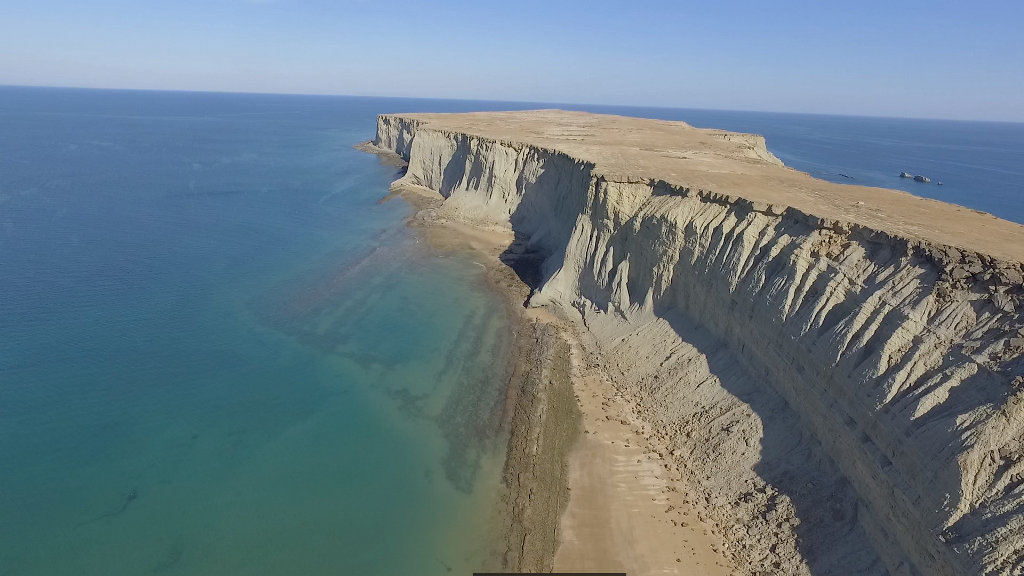Astola Island Management Plan Endorsed: A National Milestone for Marine Protection
After months of dedicated efforts, from ground-level interventions to inclusive consultations, the Government of Balochistan has officially endorsed the management plan of Astola Island - Pakistan’s first Marine Protected Area (MPA).
This sets a national benchmark for marine protection and governance and represents a major achievement for the National Coordinating Body (NCB) and its member organisations advancing coastal and marine conservation.
As the convener, and following the 3rd Sub-committee Meeting on MPAs held during the 24th NCB Meeting (co-hosted by Engro Foundation), IUCN Pakistan is now advancing the implementation of the Astola Island Marine Protected Area (AIMPA) Management Plan. This step directly supports Pakistan’s commitments under the Convention on Biological Diversity (CBD) 30x30 target, the Aichi Biodiversity Targets, and the Kunming-Montreal Global Biodiversity Framework.
Ms Aisha Humera Chaudhary, Secretary, Ministry of Climate Change & Environmental Coordination (MoCC&EC), congratulated members of the NCB stating: “The NCB has proven to be a vital platform for driving Pakistan’s marine conservation agenda. The endorsement of the Astola Island Management Plan is a national breakthrough, and I commend IUCN Pakistan for its technical leadership and the NCB for guiding a process that sets a cornerstone and strengthens Pakistan’s commitment to global conservation targets”.
Adding to the discussion, Mr. Abdul Fattah Bhangar, Secretary, Forest & Wildlife Department, Government of Balochistan, remarked: "The Government of Balochistan stands fully committed to implementing the endorsed AIMPA plan, we are determined to ensure its success in line with the global biodiversity frameworks and through the active support of our partners “This is a national achievement made possible through IUCN’s technical leadership and collaborative effort of all the stakeholders."
Pakistan’s marine and coastal resources face mounting pressure from climate change and human-induced impacts. While the endorsement of the Astola Island Marine Protected Area (AIMPA) Management Plan indeed is a major milestone, it also brings into focus the pressing need to implement the plan and strengthen adaptive policy frameworks. During his welcome address, Mr Mahmood Akhtar Cheema, Country Representative of IUCN Pakistan, emphasised that continued engagement through the NCB platform will support not only the protection of Astola Island but also broader marine conservation efforts nationwide. These conservation achievements along the coast have been made possible through close coordination and essential support from the Ministry of Defence, including the Pakistan Navy. The realisation of the management plan would not be possible without their involvement, he added.
The role of private sector investment in driving conservation activities and climate resilience initiatives was also emphasised during the NCB meeting. Mr. Favad Soomro, Head of Engro Foundation, reiterated the importance of cross-sector collaborations in achieving sustainable environmental outcomes, while acknowledging the significant contributions made by the NCB forum. He also highlighted the growing recognition of cultural and heritage sites as integral to conservation planning.
The identification and assessment of new potential sites is a positive leap forward in expanding the sphere of marine protection thoroughly discussed during the 3rd Sub-committee meeting on MPA on the preceding day. Another critical agenda item during the 24th NCB meeting was the feasibility study on Patiani and Dabbo Creeks as potential MPAs where Mr. Riaz Ahmed Wagan, Chief Conservator of Forests, Sindh, guided the forum on the assessment of the study. He highlighted the ecological significance of the sites, detailing the methodology adopted for the study, and reinforced their potential designation as MPA.
The Secretaries of Forest & Wildlife Departments of Sindh and Balochistan provinces, Mr Najab Uddin Sehto and Mr Abdul Fateh Banghar respectively, reflected on the traction that marine conservation has gained in Pakistan and appreciated the commitment of organizations like IUCN to safeguarding marine ecosystems in Pakistan.
Additionally, progress under IUCN’s Small Grants Programme led by grassroots organizations advancing community-led conservation initiatives was also featured in the session agenda, with a strong focus on livelihood support, local capacity building, and nature-based solutions rooted in traditional knowledge systems.
Building on the momentum of the Astola Island Management Plan’s endorsement, the 24th NCB meeting marked a critical juncture for Pakistan’s marine conservation landscape. As implementation of the plan takes centre stage, the NCB platform remains a driving force for collaborative conservation, supporting strategic planning, knowledge exchange, and on-ground action. IUCN Pakistan, as the convener, will continue to work alongside national and provincial partners to strengthen the management of existing MPAs, explore new designations, and ensure that local communities remain at the heart of nature-based solutions for a resilient coastal future.
For more information, please contact:
Mr Hammad Saeed
Manager, Communications and Knowledge Management
IUCN Pakistan, Islamabad Country Office
Cell. +92 307 7773801
E-mail: [email protected]




